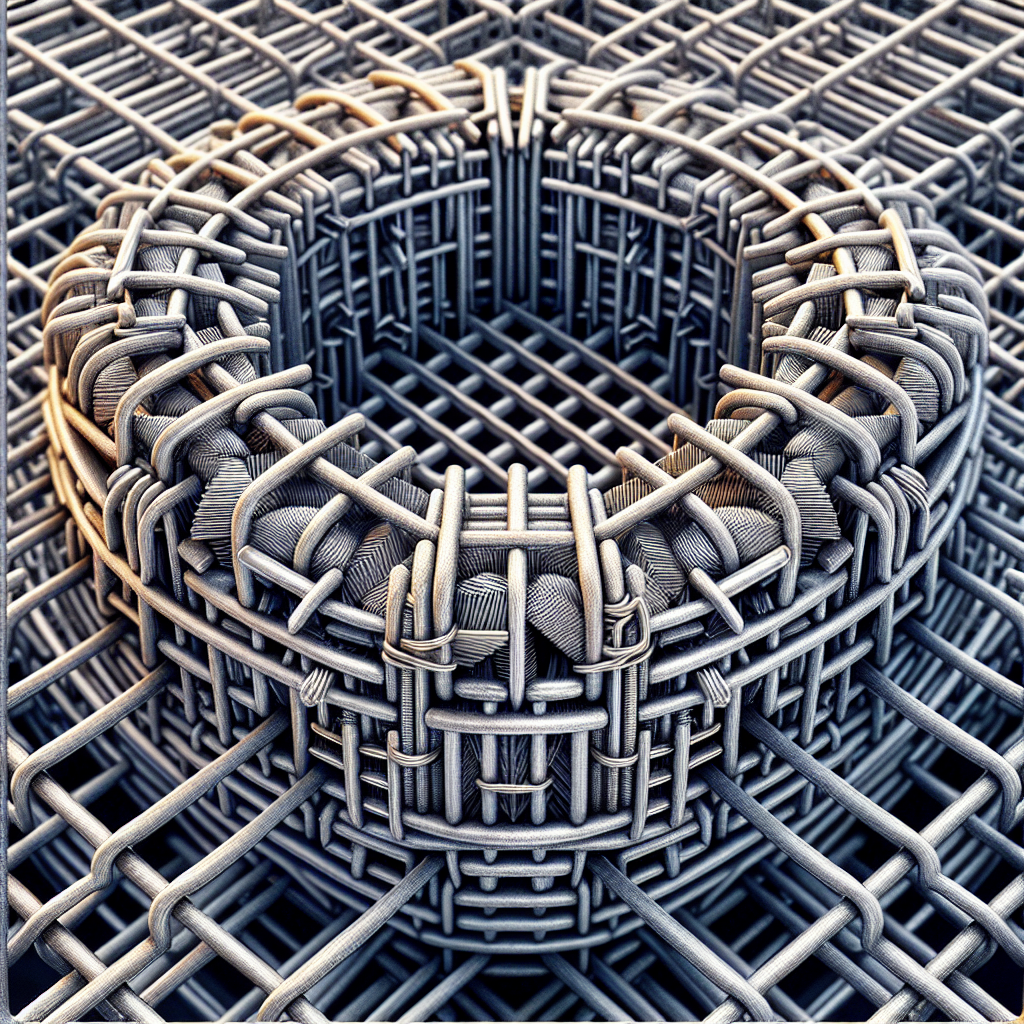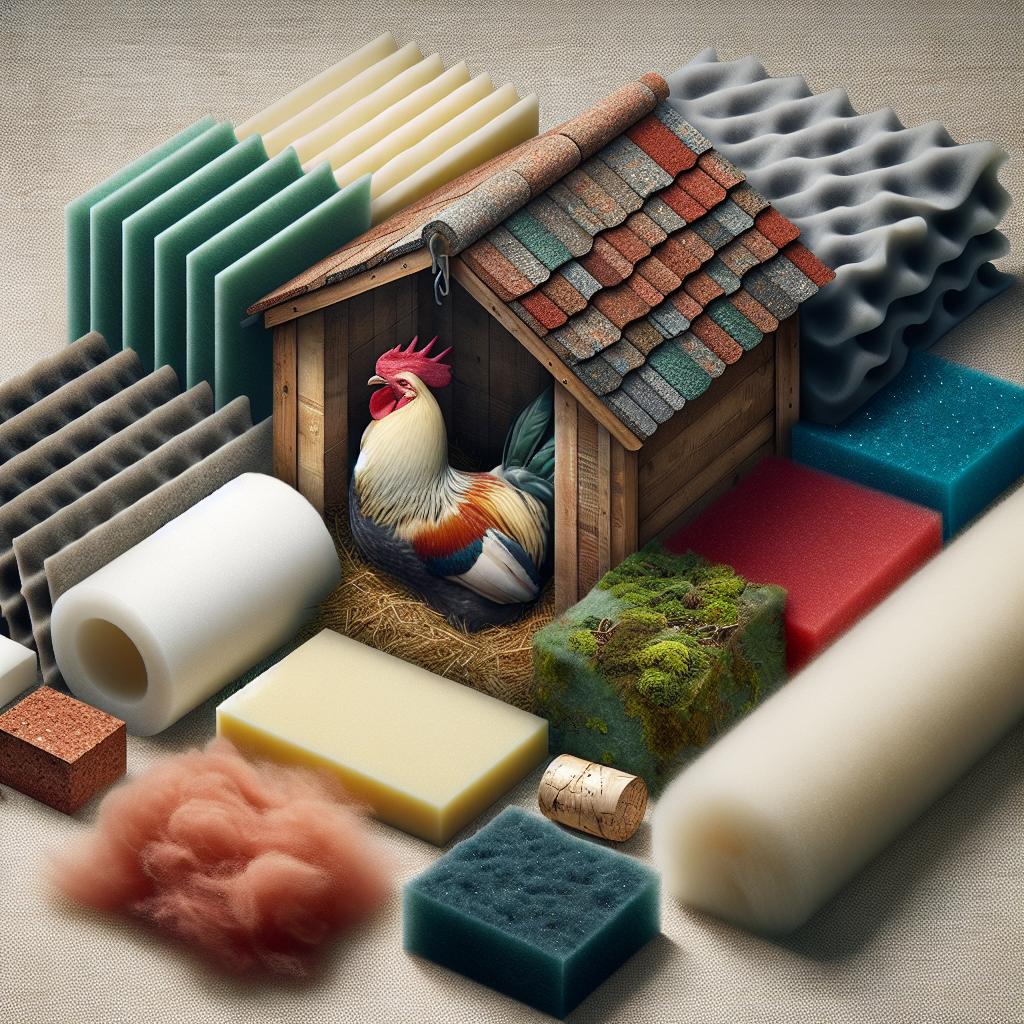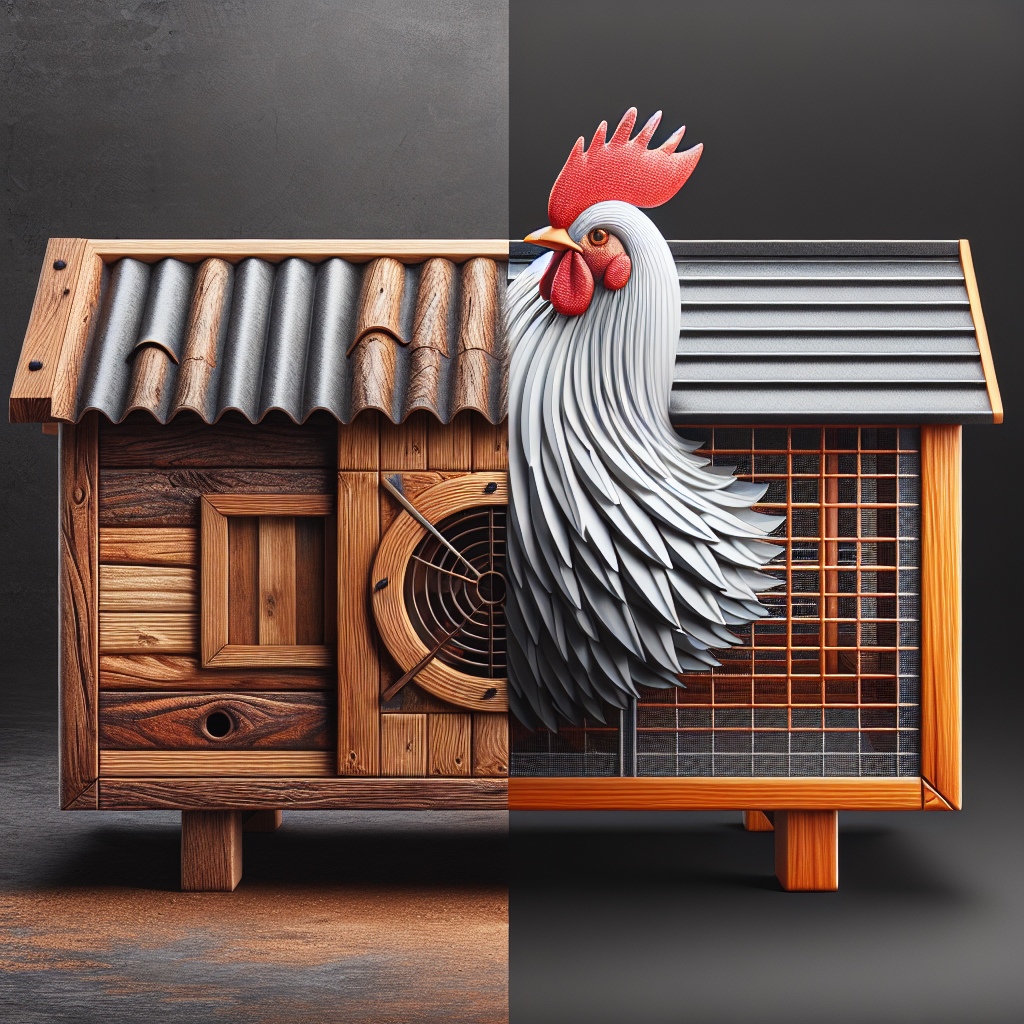Are you considering using mesh or wire materials in your coop design, but not sure if it’s the right choice? In this article, we will explore the pros and cons of using these materials in coop designs. From providing proper ventilation and predator protection to potential risks of injury and additional maintenance requirements, we will cover all the important factors to help you make an informed decision. Whether you’re a beginner or experienced chicken keeper, understanding the advantages and disadvantages of mesh or wire materials will ensure you create a coop that meets your flock’s needs.
Pros of Using Mesh or Wire Materials in Coop Designs
Durability
Mesh or wire materials used in coop designs are highly durable. They are often made from strong materials such as galvanized steel or heavy-duty mesh. This ensures that the coop will have a long lifespan and can withstand the elements, including strong winds, heavy rains, and even potential predator attacks. The durability of these materials gives you peace of mind knowing that your coop will be able to provide a secure and reliable housing solution for your flock.
Ventilation
One of the main advantages of using mesh or wire materials in coop designs is the excellent ventilation they provide. The open nature of the mesh or wire allows for good air circulation within the coop, helping to prevent the buildup of moisture and ammonia. Ammonia buildup can be harmful to the health of your chickens and may cause respiratory issues. With proper ventilation, your chickens will have access to fresh air, which is essential for maintaining their overall health and well-being.
Predator Protection
Mesh or wire materials offer excellent protection against potential predators. They create a physical barrier that prevents larger predators, such as raccoons, foxes, or coyotes, from gaining access to your chickens. The small gaps in the mesh or wire make it difficult for predators to reach through and harm your flock. This ensures the safety of your chickens and reduces the risk of predation, giving you peace of mind that your feathered friends are well-protected.
Easy Cleaning
Coops made with mesh or wire materials are easy to clean and maintain. The open design allows for quick and efficient cleaning, as any droppings or dirt can be easily washed away with water or swept out using a broom. This makes it easier to maintain a clean and hygienic environment for your chickens, which is essential for their health and well-being. Additionally, the mesh or wire materials themselves are less likely to harbor bacteria or pests, further contributing to a healthier living space for your flock.
Lightweight
Mesh or wire materials used in coop designs are generally lightweight, making them easier to handle and move. This is particularly beneficial if you need to relocate or reposition your coop for any reason. The lightweight nature of these materials also makes construction and assembly easier, as they can be maneuvered and installed with less effort. Whether you are setting up a new coop or making modifications to an existing one, the lightweight nature of mesh or wire materials will make the process much more manageable.
Easier Monitoring
Coops with mesh or wire designs provide excellent visibility, allowing you to easily monitor your chickens. The open nature of the materials enables you to observe your flock from different angles and have a clear view of their activities. This makes it easier to spot any signs of illness or distress, as well as to check on their general well-being. Being able to monitor your chickens closely ensures that you can provide timely care and attention when needed, promoting their overall health and happiness.
Affordability
Mesh or wire materials are generally more affordable compared to other options available for coop designs. They are widely accessible and come in various price ranges, allowing you to choose one that fits your budget. If you are starting out with a limited budget or have a small flock, using mesh or wire materials can be a cost-effective solution without compromising the safety and comfort of your chickens. The affordability of these materials makes them an attractive choice for both novice and experienced chicken keepers.
Flexibility
Mesh or wire materials provide great flexibility in coop designs. They can be easily shaped and molded to fit various sizes and shapes, allowing you to customize the coop according to your specific needs and available space. Whether you have a small backyard or a larger area, mesh or wire materials can be adapted to create a coop that maximizes the use of the available space. The flexibility of these materials gives you the freedom to design and build a coop that suits your flock and your unique circumstances.
Increased Light
Using mesh or wire materials in coop designs allows for increased light exposure inside the coop. The open design enables sunlight to penetrate the coop, providing natural light to your chickens. Natural light is essential for their well-being, as it helps regulate their internal clocks, promotes vitamin D synthesis, and positively impacts their mental and physical health. Increased light exposure can also enhance egg production and improve the overall quality of eggs. By incorporating mesh or wire materials, you can create a coop that benefits both you and your chickens.
Multi-Purpose Use
Mesh or wire materials offer versatile applications beyond coop designs. They can be used for various purposes such as fencing, garden enclosures, or even as covers for vegetable beds. This multi-purpose use of the materials allows for cost-effective solutions and maximizes their value. Whether you’re creating a dedicated chicken run, protecting your garden from pests, or securing other outdoor areas, mesh or wire materials can be repurposed effectively, making them a practical investment.
Cons of Using Mesh or Wire Materials in Coop Designs
Less Privacy
One of the main drawbacks of using mesh or wire materials in coop designs is the reduced privacy it provides for your chickens. The open nature of the mesh or wire allows outsiders to have a clear view of your flock, which can be stressful for some chickens. Birds of prey or curious animals may also be more likely to approach the coop, causing distress to your chickens. However, you can mitigate these privacy concerns by providing some areas within the coop that offer more seclusion and hiding spots for your chickens.
Limited Insulation
Mesh or wire materials have limited insulation properties compared to solid materials such as wood. During extreme weather conditions, such as cold winters or hot summers, the coop may not provide sufficient insulation to keep your chickens comfortable. You may need to rely on additional insulation measures, such as adding blankets or straw, to help regulate the temperature within the coop. It’s important to consider the climate of your area and implement appropriate insulation solutions if you choose to use mesh or wire materials in your coop design.
Potential for Rust
If the mesh or wire materials used in coop designs are not properly coated or treated, they may be prone to rust. Rust not only affects the durability of the materials but can also pose health risks to your chickens if they come into contact with it or ingest it. It’s essential to choose high-quality, rust-resistant materials to minimize the risk of rust formation. Regular maintenance and inspections should also be conducted to identify any signs of rust and take appropriate measures to prevent its spread.
Entrapment Hazards
While mesh or wire materials provide excellent predator protection, there is a potential risk of entrapped hazards for your chickens. The small gaps in the mesh or wire may trap smaller birds or chicks, posing a danger to their safety. To prevent this, it’s crucial to use mesh or wire materials with appropriate gap sizes, ensuring that they are not too wide for your flock. Regularly inspecting and maintaining the coop will also help identify and address any potential entrapment hazards.
Weaker Protection
Compared to solid materials, such as wood or metal, mesh or wire materials offer a relatively weaker level of physical protection. Determined predators, such as raccoons or dogs, may still be able to chew or scratch through the mesh or wire, gaining access to your chickens. It’s important to complement the mesh or wire materials with additional security measures, such as reinforced door locks or installing an electric fence around the coop perimeter, to enhance the protection against determined predators.
Maintenance Requirements
Coops made with mesh or wire materials typically require more regular maintenance compared to solid materials. The small gaps in the mesh or wire can become clogged with debris, feathers, or droppings over time, potentially impacting the ventilation and cleanliness of the coop. Regularly inspecting and cleaning the coop, as well as maintaining the integrity of the mesh or wire, is essential to prevent any deterioration or issues arising from neglect. It is important to factor in the maintenance requirements when deciding on the materials for your coop design.
Need for Additional Security Measures
Although mesh or wire materials offer good predator protection, there may be a need for additional security measures to ensure the safety of your flock. Determined predators may attempt to dig under the coop or climb over fences to gain access to your chickens. To prevent this, you may need to reinforce the coop’s foundation with buried wire mesh or dig a trench around the perimeter and install an underground barrier. These additional security measures will provide an extra layer of protection and minimize the risk of predator intrusion.
Potential for Wildlife Intrusion
While mesh or wire materials protect against larger predators, they may not effectively deter smaller wildlife, such as rats or snakes, from entering the coop. These smaller animals can still find their way through the gaps in the mesh or wire, posing a threat to your chickens. Regularly inspecting and sealing any gaps or vulnerabilities in the coop will help minimize the potential for wildlife intrusion. Additionally, implementing proactive pest control measures, such as regular trapping or using predator deterrents, can further mitigate the risk.
Less Aesthetic Appeal
Coops made with mesh or wire materials may have less aesthetic appeal compared to coops made with solid materials. The open and utilitarian design of mesh or wire may not provide the same visual appeal as coops made with more elaborate or decorative materials. However, it is possible to enhance the aesthetic appeal of a mesh or wire coop by incorporating decorative elements or integrating it into a well-designed yard or garden space. Ultimately, the functionality and reliability of the coop should take precedence over aesthetics.
Exposure to Adverse Weather Conditions
Using mesh or wire materials in coop designs means that your chickens will be exposed to the elements more directly compared to coops made with solid materials. Extreme weather conditions, such as heavy rain or strong winds, may affect the comfort and well-being of your chickens. Providing additional shelter within the coop, such as a covered area or installing tarps during adverse weather, will help protect your flock from the elements. It’s important to prioritize the safety and welfare of your chickens and take appropriate measures to safeguard them from adverse weather conditions.




